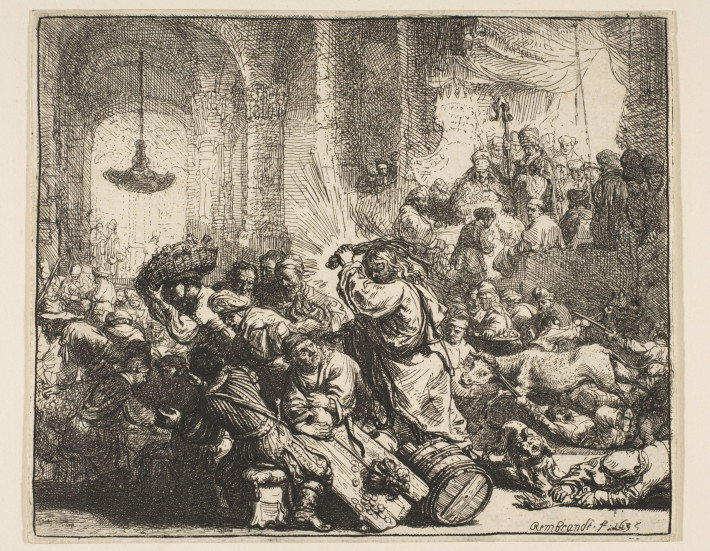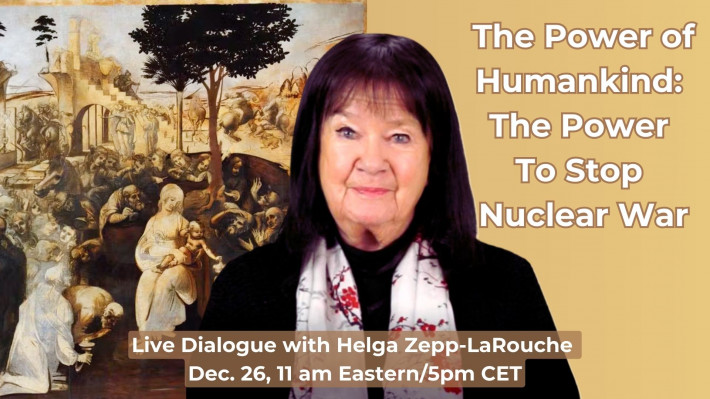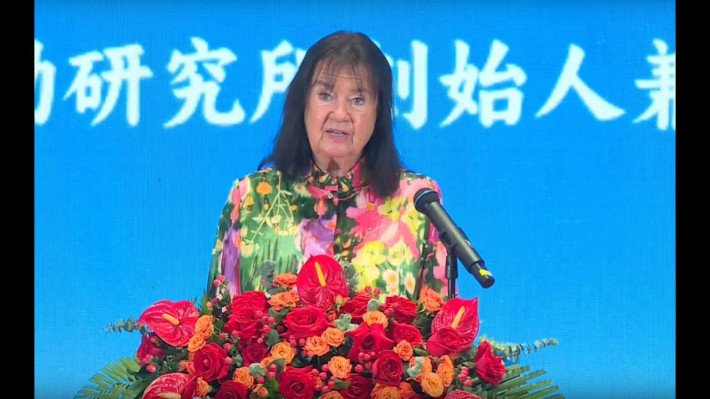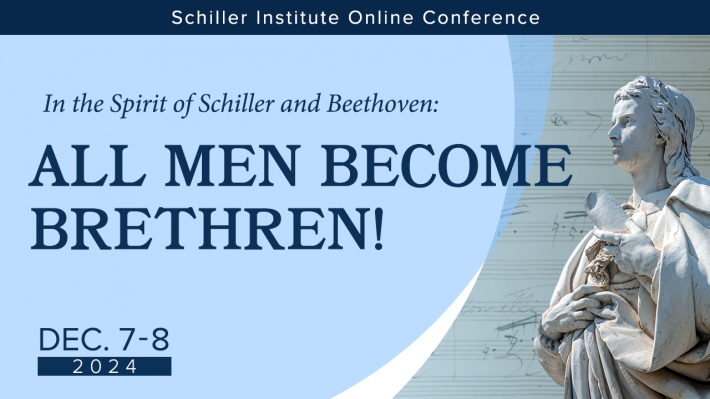Schiller Institute founder Helga Zepp-LaRouche opened today’s 83rd consecutive weekly meeting of the International Peace Coalition (IPC) forecasting the unraveling of the present global order in 2025, leading either to world war or a new paradigm. She cautioned that President-elect Trump’s “America First” agenda does not solve the problem, because it could lead to other nations following suit, creating more conflict. We need a completely new paradigm putting the “one humanity” first.
Reviewing the current zones of conflict, Zepp-LaRouche warned that even if the West sends more weapons, Ukraine cannot win in their war against Russia. They are running out of soldiers. Ukrainians are acutely aware that they have been used as pawns in a proxy war.
In Southwest Asia, Axios reports that National Security Advisor Jake Sullivan discussed Iran’s nuclear program with President Biden, including the possibility of the U.S. launching a military attack on Iran. Zepp-LaRouche recommended the video by Indian historian and journalist Vijay Prashad, “The Genocide in Gaza EXPOSED the West’s Moral Collapse.” She concluded with the importance of 2025 as a Jubilee Year, an opportunity to usher in a New Paradigm. Affirming that the West must stop the confrontation against the Global South (which has become the Global Majority), she read out the nine nations that became BRICS partner nations as of Jan. 1.
Ray McGovern, former CIA analyst and co-founder of the Veteran Intelligence Professionals for Sanity (VIPS), spoke about the Biblical massacre of the innocents by King Herod. No longer can any country, he said, least of all America, claim to be the “exceptional country,” after 500,000 children were killed by sanctions in Iraq, and Secretary of State Madeleine Albright proclaimed that it was “worth it.” We must not only “do no harm,” we must also do the Good, he insisted, reading a poem by British author Michael Rosen, “Don’t Mention the Children,” written after Israel had banned a radio broadcast that named killed Gazan children.
Dr. Nidal Jboor, co-founder of Doctors Against Genocide, stated that “a mass slaughter of children has been happening in the past 15 months.” The Western powers’ complicity in genocide will have long-term ramifications that we will all have to live with. Israel claims to be fighting a “war,” but in war you fight armies, not schools, hospitals and clinics. Jboor described how Kamal Adwan Hospital was burned. Patients fled to an abandoned hospital with no services. The hospital’s director, Dr. Hussam Abu Safiya, was abducted and tortured. The Israeli regime says it cannot locate him. The American Medical Association and other U.S. medical institutions have been silent. “We are calling them out,” Jboor said. “More than 20,000 children have been slaughtered by Israel.”
Dr. Mimi Syed, an emergency medical doctor, born and trained in the U.S., just returned from Gaza where she worked in emergency care for horrifically wounded children. She did not encounter any military operations or combatants in hospitals there. She described “scenes of chaos and despair … an excruciating reality.”
Fernando Garzón, leader of the Ecuadorian-Palestinian Union, discussed the significance of Pope Francis having announced a Jubilee Year and how the international financial institutions are responsible not only for the debt, but also for the conflicts such as Gaza. Ecuador successfully repudiated a large part of its public debt in 2008 under President Rafael Correa, after completing a detailed study which proved that the debt was “odious and illegitimate,” resulting in Correa’s political persecution. The “conditionalities” policy of the IMF and World Bank created a shameful situation where “external debt became eternal debt.” Garzón was a vice-minister in the Ecuadorian government when it issued its historic debt study. Ecuador is a small country, but provided a very big lesson for the world today.
Discussion and Initiatives
Dr. Karameh Hawash-Kuemmerle, co-founder of Doctors Against Genocide, said that people are feeling sick from the genocide, not because we are fragile, but because it is an unnatural thing. “What is happening in Gaza is something beyond what we can imagine,” she said. We are disoriented and depressed, suffering from chronic fatigue, sleep disorders, and many other symptoms, because we are witnesses to genocide. We should honor doctors who fight for human life, not “doctors who say that if you speak of genocide you will be fired.” In response to a question, she replied, “The treatment for sickness from genocide is organizing to end the genocide.”
Josephine Guilbeau, a 17-year U.S. Army veteran with four children, who served as an all-source intelligence analyst and is currently associate director of communications for the Eisenhower Media Network, recently intervened, in full uniform, before the House Committee on Veterans’ Affairs. “As an American, I am going to acknowledge the painful truth,” that the U.S. has been complicit in the genocide in Gaza, and “I am committed to holding my government accountable.” Another group, Taxpayers Against Genocide, launched a legal action against Congress, accusing it of helping arm the Israeli military in violation of “international and federal law that prohibits complicity in genocide.” Guilbeau added that we need universities to create platforms to accept students facing expulsion due to their public opposition to genocide.
Zepp-LaRouche lamented that although there was a commitment in her native Germany 80 years ago, that “Never Again” would genocide be tolerated, now Germans face arrest and jail for even talking about the ongoing genocide in Gaza. “I pledge that we will use these heartbreaking stories to mobilize opposition to this genocide.”
IPC co-moderator Dennis Speed said that many people are “conveniently forgetting Aaron Bushnell,” an active-duty U.S. serviceman who self-immolated in protest against U.S. complicity in the genocide. Bushnell said: “Many of us like to ask ourselves, ‘What would I do if I was alive during slavery? Or the Jim Crow South? Or apartheid? What would I do if my country was committing genocide?’ The answer is, you’re doing it. Right now.”
John Steinbach, co-founder of the Hiroshima-Nagasaki Peace Committee, said the official death toll in Gaza of 46,000 counts only those people who have been identified. A conservative estimate as of six months ago, by British medical publication The Lancet, gives the actual death toll of 186,000. It is a mistake to see Israel as “influencing the U.S. government”: Israel, led by the followers of Meir Kahane, is carrying out the policies of the U.S. government.
Dr. James Cobey, a renowned orthopedic surgeon who served in Gaza many times, had led the campaign 30 years ago to ban landmines, gaining support from the American Medical Association, said we need to get the AMA to oppose the present genocide.
IPC co-moderator Dennis Small noted that the Hippocratic Oath is not satisfied by the mere rejection of doing harm; one must actively do the good—just as repudiation of the debt is not enough. It has to be followed by issuing productive credit for real growth and ending poverty. Dr. Jboor agreed, deploring the silence of the medical community. He said his organization is trying to replicate the efforts of the student movement on campuses across the U.S.
Zepp-LaRouche concluded by saying that many Germans could claim, 80 years ago, that they did not know of the atrocities being carried out by their government. People living today, with omnipresent media coverage of the ongoing genocide, have no such excuse. “We can shame the people today, who now know and pretend not to know.”


























